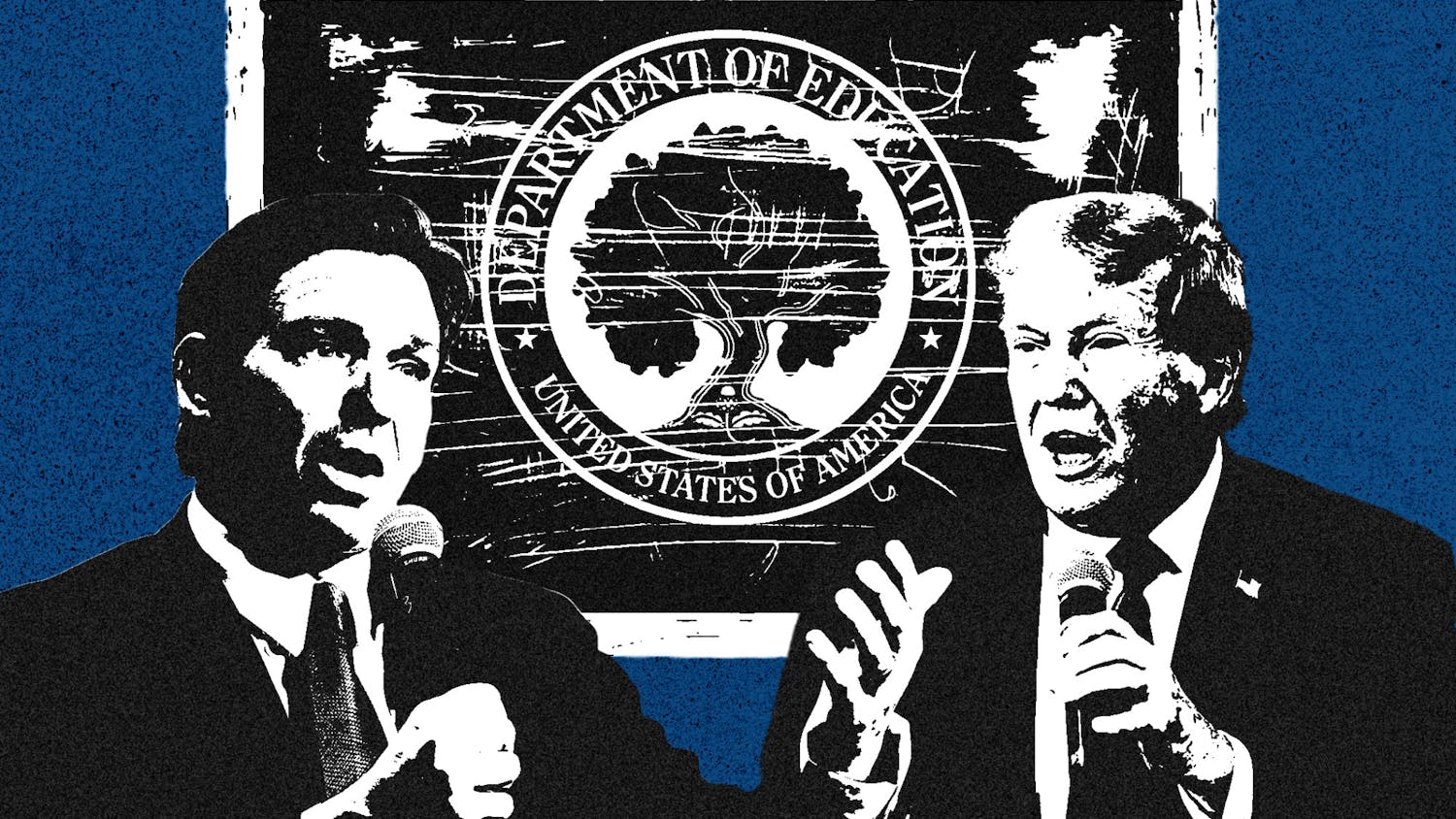There’s only one day to go before voters head to the polls on Election Day and vote in one of the most bitter gubernatorial races I’ve ever seen. Through news reports, campaign ads and numerous online sources, people have been bombarded with information about each candidate. Unfortunately, not all of that information has been true, and myths and “fake news” about both candidates have abounded in this election cycle.
Andrew Gillum, the Democratic candidate for Governor of Florida, has been a target of much misinformation. For example, during a gathering of supporters of his opponent, Ron Desantis, on October 15, U.S. Senator Marco Rubio claimed that after Hurricane Michael hit Tallahassee, Gillum — who is mayor of Tallahassee — “stood in the way of crews being able to come in and restore power” and kept the city in the dark for weeks because the crews were part of the wrong union.
Fact-checking site PolitiFact analyzed that claim and rated it “False.” For one thing, while Michael did leave 90 percent of Tallahassee customers without power, a report from Leon County — the county Tallahassee is in — found that most people had their power restored within a week, contrary to Rubio’s claim that the city was without power for weeks on end. Michael struck Tallahassee on Sept. 1, and by Sept. 8, the state emergency response team tweeted that only 2 percent of Tallahassee customers were without power. In addition, while the city of Tallahassee didn’t jump on an offer from Florida Power & Light to help restore power, eight other companies were already working to restore power at that point. In any case, decisions over whether to help to restore power were not Gillum’s responsibility; rather, they fell to Robert McGarrah, Tallahassee’s general manager of energy utility. Finally, PolitiFact found no evidence that union status was a factor in deciding who could restore power: Officials involved in the process like Barry Moline, former head of the Florida Municipal Electrical Association, reported that union status played no role in the process, and even the city’s own crews who helped to restore power were not unionized.
However, Gillum isn’t the only candidate facing misinformation: Republican gubernatorial candidate Ron DeSantis has also faced untrue allegations. At a June 28 Fox News debate, back when DeSantis was running in the Republican primary against Florida Commissioner of Agriculture Adam Putnam, Putnam claimed that DeSantis “voted in an agricultural bill to give food stamps to illegal immigrants.” DeSantis responded during the debate, “that’s not true, you know that, come on.” Indeed, it isn’t true. According to PolitiFact, the bill referenced here is the 2014 federal farm bill — formally titled H.R. 2642 — and in addition to the usual provisions of farm bills like reauthorizing crop subsidies and regulating food assistance benefits like the Supplemental Nutrition Assistance Program (SNAP), Section 4015 mandated that states would be “required to use an immigration status verification system” when distributing food assistance benefits. While DeSantis voted against that bill and a preceding bill with a similar provision, that does not mean DeSantis wants to give SNAP benefits to undocumented immigrants. For one thing, SNAP is already limited to citizens, so those in the country illegally are not eligible for SNAP regardless of the provision passing or not. Second, DeSantis explained in a Facebook post after the vote that he voted against the bill because he thought it was a “bad deal for taxpayers” that did not do enough to cut the costs of the SNAP program — not because of any issue related to illegal immigration. PolitiFact thus rated Putnam’s claim “Pants on Fire,” indicating an extremely false and misleading claim.
While some would say misleading claims and half-truths are emblematic of politicians and politics, outright lies and misinformation help no one. Between misinformation spread by the candidates themselves, plus the countless baseless claims spread by hoax news outlets on the web, it’s increasingly difficult for voters to find good information when researching who they should vote for. A popular saying states that “a lie can travel halfway around the world before the truth can get its boots on,” and that is even more true in the age of the internet. When fake news proliferates, any semblance of rational political discourse breaks down as we debate talking points at best to outright hoaxes at worst. So, before you head to the ballot box tomorrow, do your research; reputable organization like the League of Women Voters provide excellent and nonpartisan voter guides, and I highly recommend using them. And before you cast your ballot, ask yourself this: Am I basing my decision on informed and rational analysis or on misinformation and fake news? The answer might surprise you.
Jason Zappulla is a UF history junior. His column appears on Mondays.






